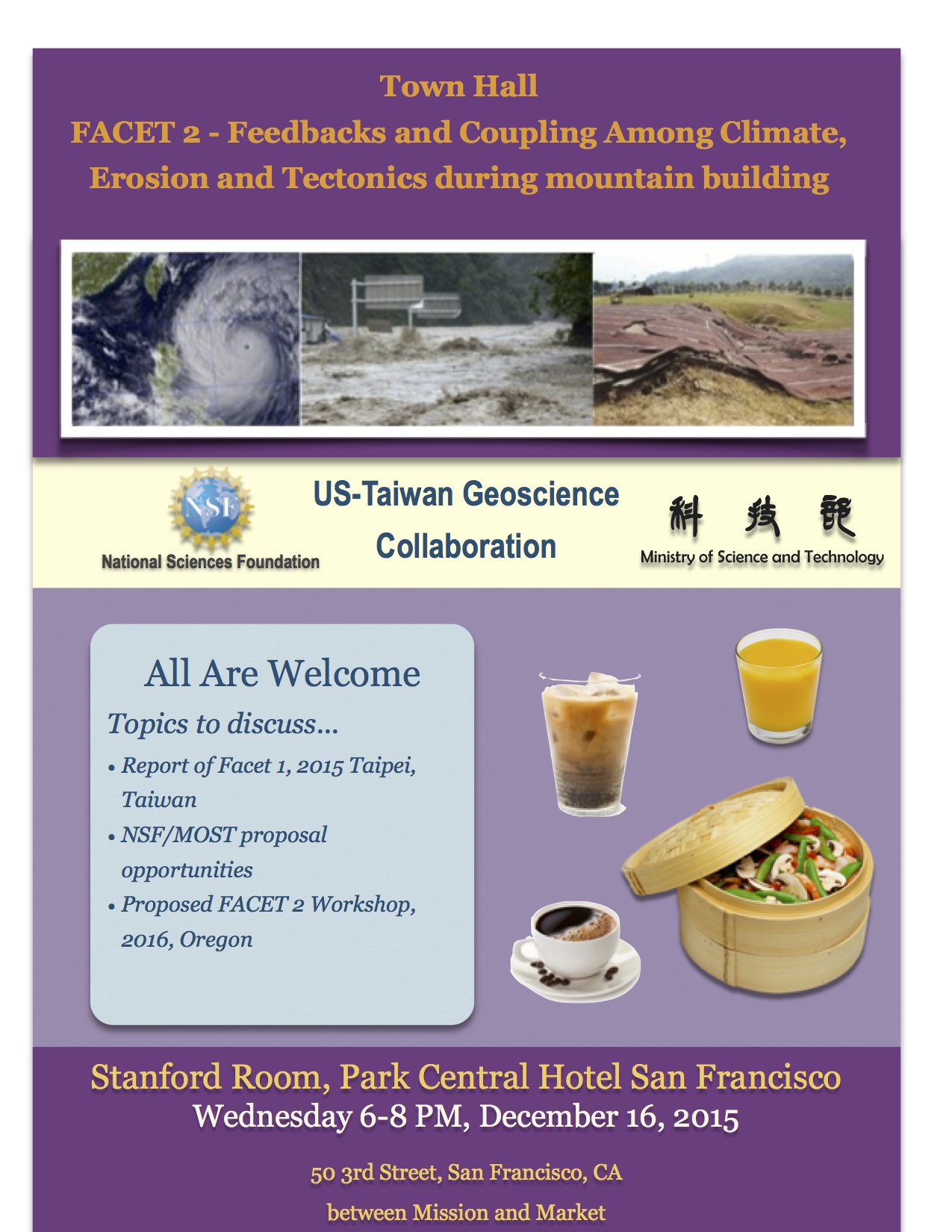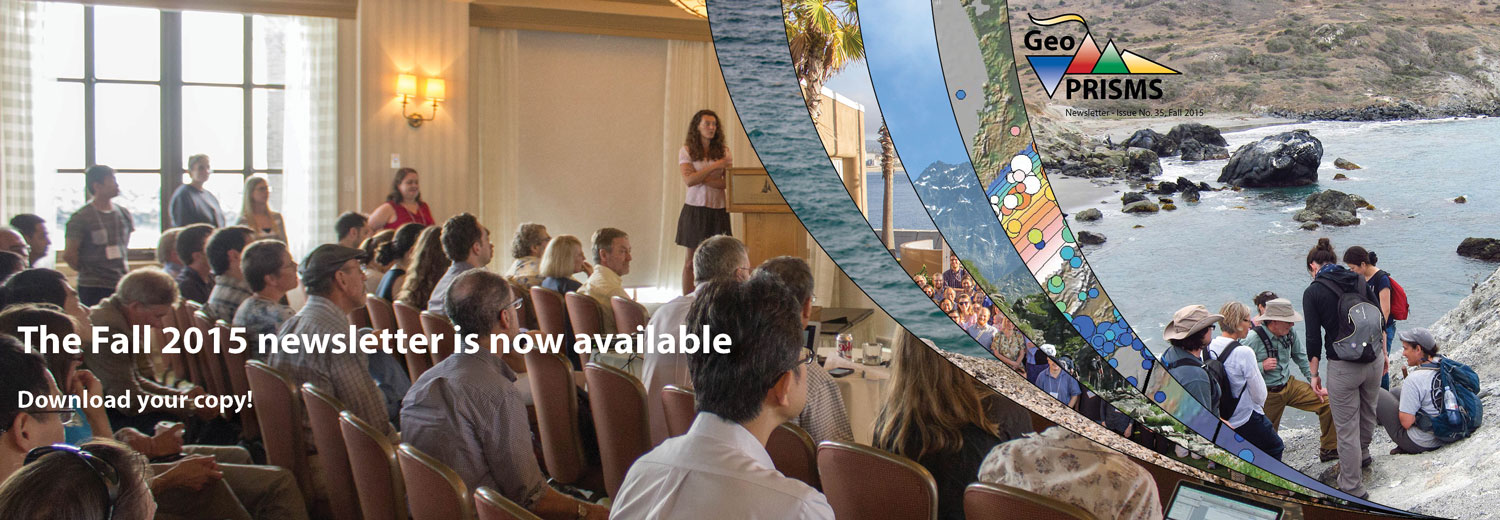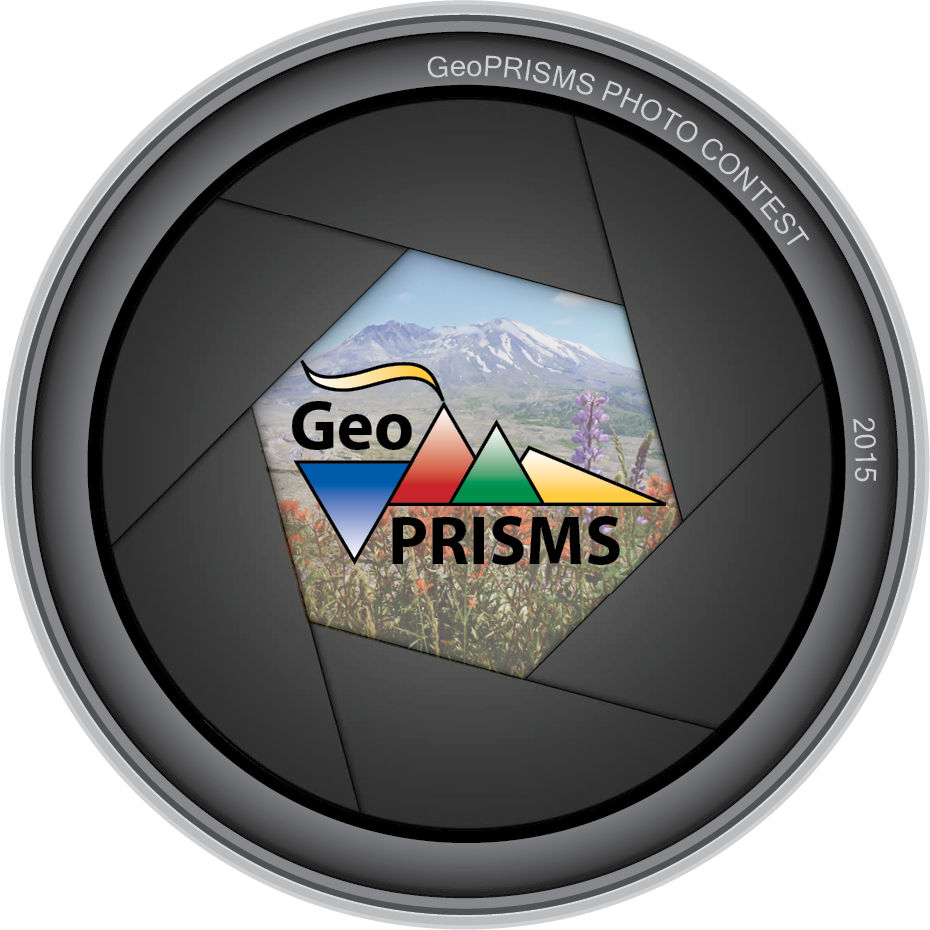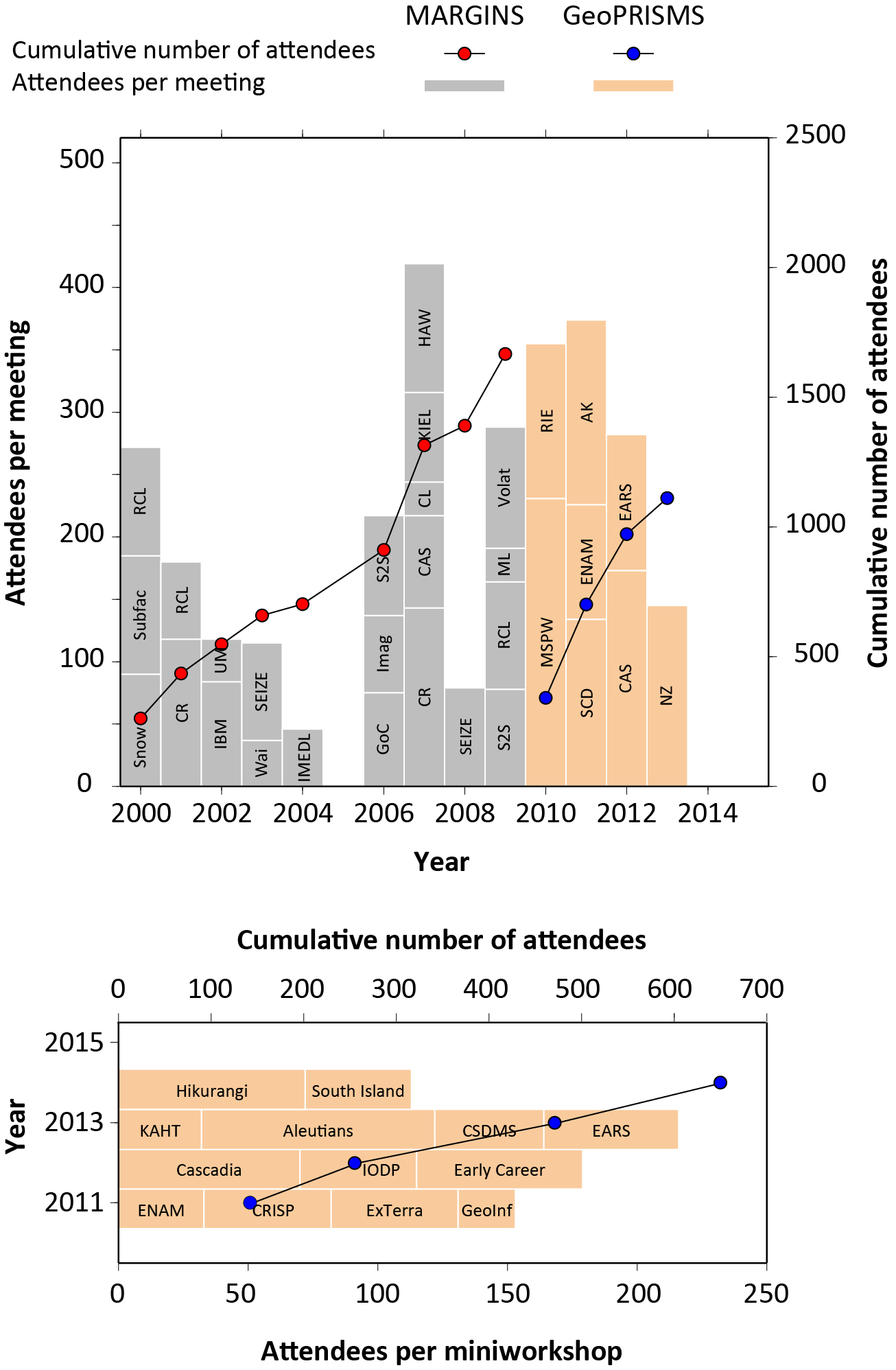
Join us for the GeoPRISMS Townhall Meeting and Community / Student Forum at the 2015 AGU Fall Meeting!
When: AGU Fall Meeting 2015 – Monday December 14 at 6:00 PM
Where: The Park Central Hotel (formerly Westin Market Street) 50 Third Street – Franciscan Ballroom
The event is open to all with interests in the GeoPRISMS Program and GeoPRISMS (or MARGINS) research. Come hear updates about the GeoPRISMS Program, the latest GeoPRISMS research projects & study areas, and ongoing GeoPRISMS research from student presenters.
Student entrants for the GeoPRISMS Prize for Outstanding Student Presentations are also invited to display their AGU posters (or poster versions of their AGU talks) and discuss their research with event participants. This will be a great opportunity for students to share their results further and to interact with a wide spectrum of GeoPRISMS scientists.
There will be ample time to mingle, and refreshments will be available. Among those present will be Peter van Keken (GeoPRISMS Chair), members of the GeoPRISMS Steering and Oversight Committee, and Program Manager for GeoPRISMS from the National Science Foundation.
We hope to see you there!
The GeoPRISMS Office
Questions? Contact the GeoPRISMS Office: info@geoprisms.nineplanetsllc.com




